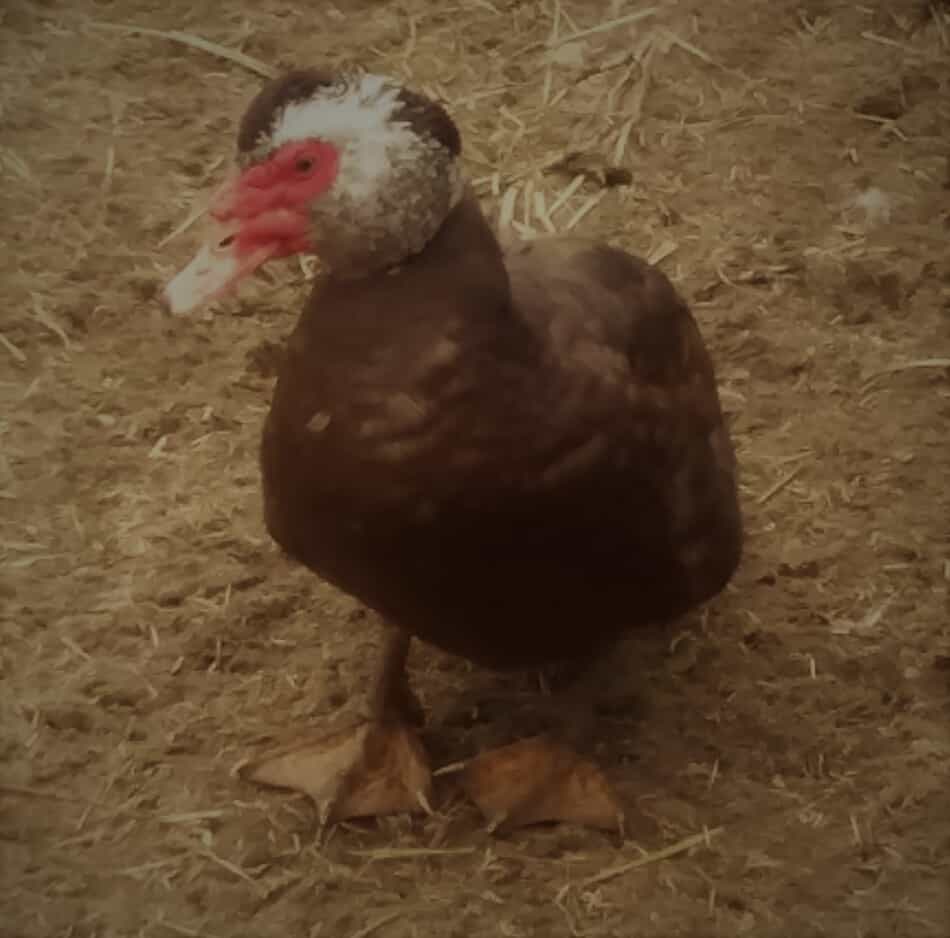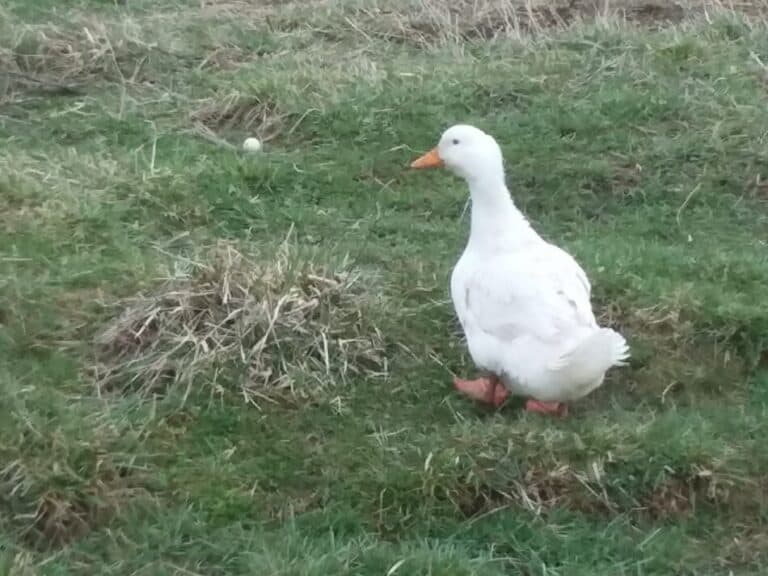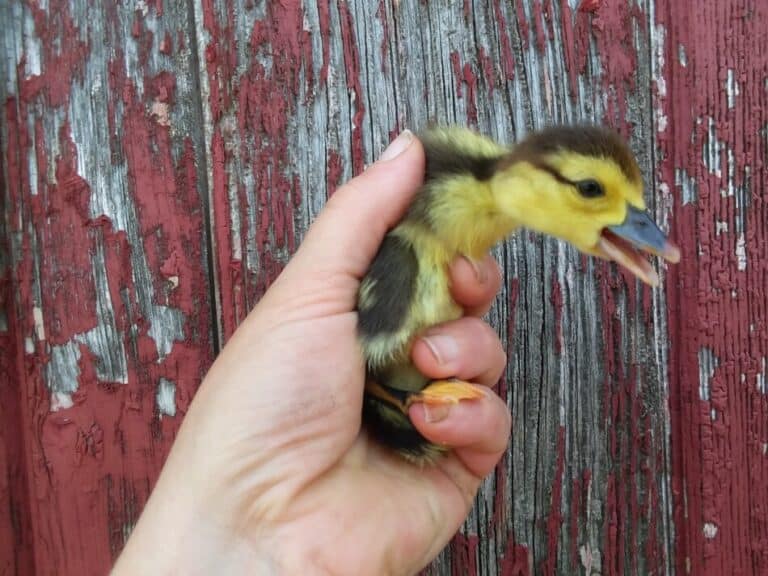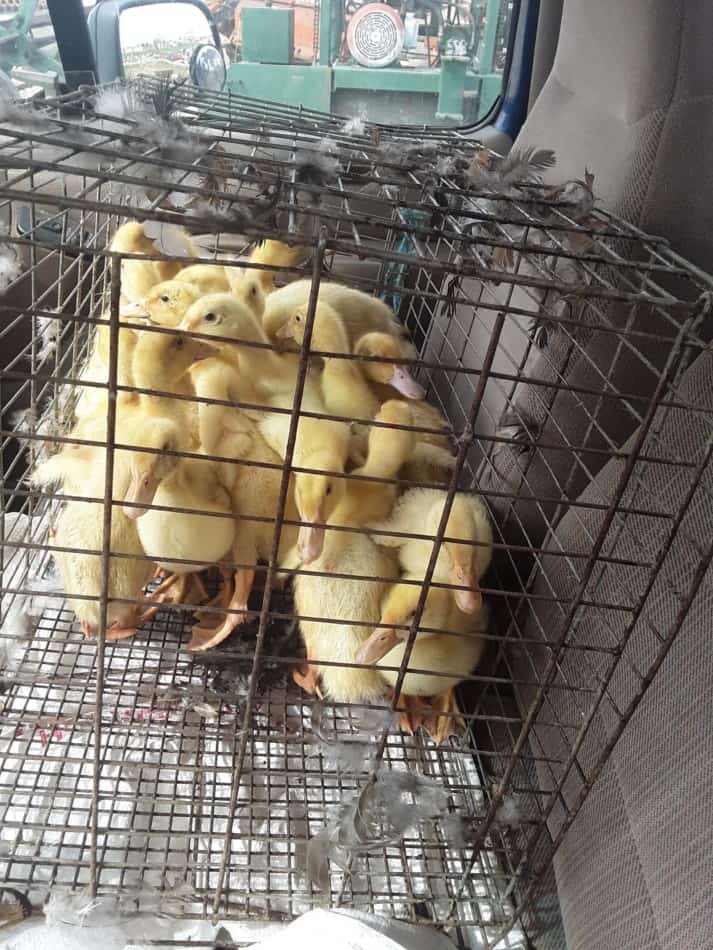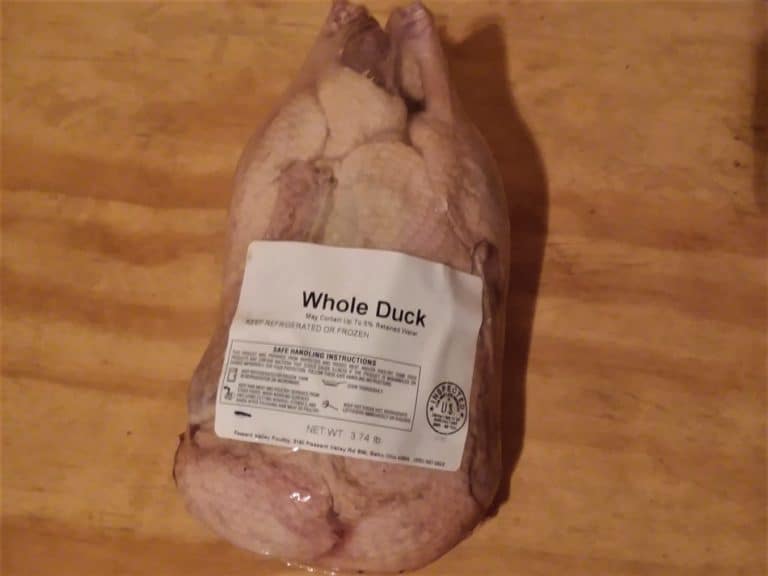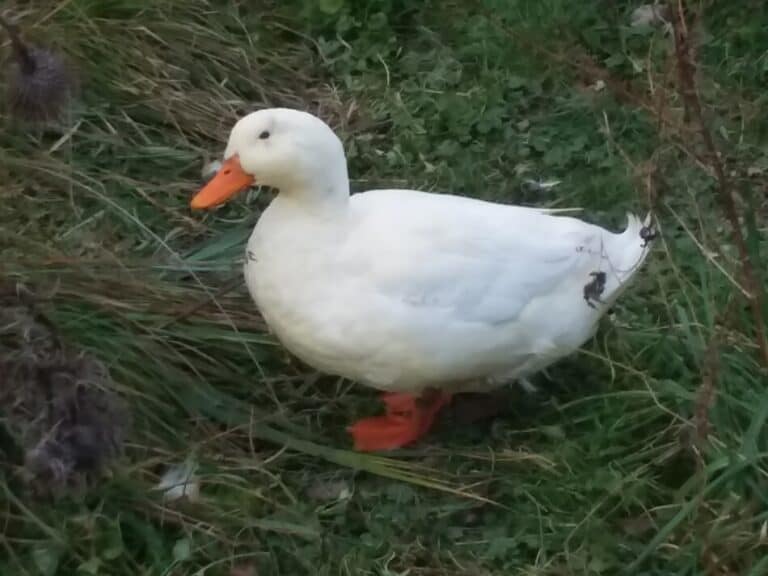6 Animals That Can Be Raised With Ducks And Chickens
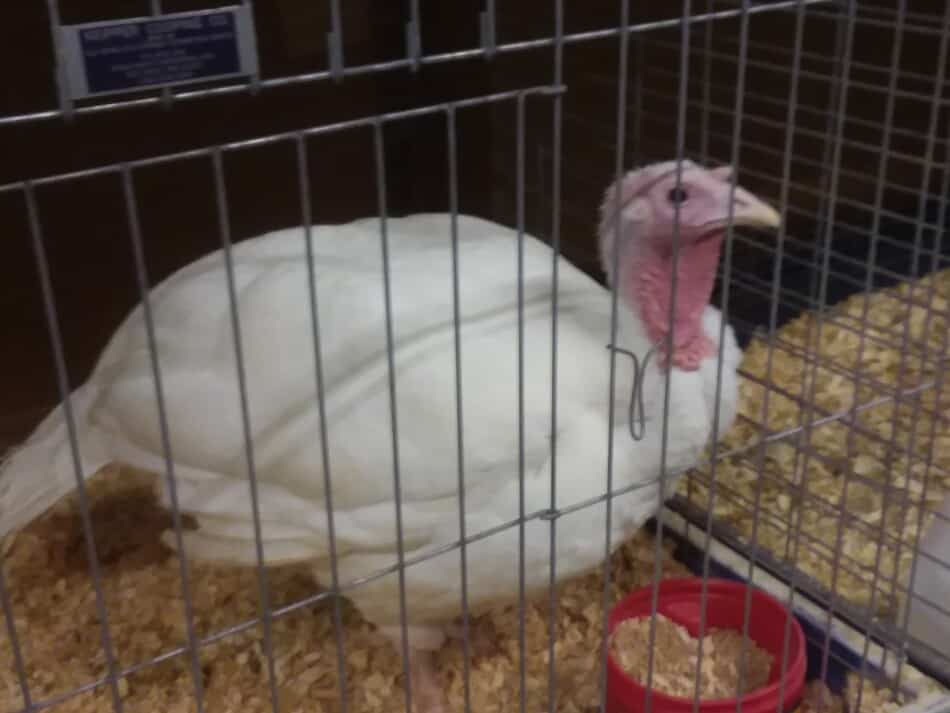
As an animal lover, we’re always looking to add to the mix. Diversity is beautiful, after all!
What animals could you raise with your chickens and ducks and still keep everyone happy?
- Cattle
- Sheep
- Goats
- Other poultry
- Pigs
- Bees
We keep all of these animals! Let me give you some insights we have come to from years of experience with a mixed species farm and barnyard.
Animals that can live with ducks and chickens
Great news, you’ve got a ton of options! Many other farm animals work well together in the same small farm or backyard as chickens and ducks!
We have the animals listed ourselves and our chickens and ducks run loose, with near zero problems.
If you are looking specifically for more birds to but with your chickens, read my article 5 Birds That Can Live With Chickens.
There are a few general cautions you should be aware of, depending upon the animal you are interested in adding, but overall, any of the six animals listed will mix well with your birds.
We’ll start with an overview of the things you’ll need to have figured out or watch out for anytime you mix other animals with chickens and ducks.
This is the generic but still important stuff that applies to all or nearly all situations. Then we move to animal specific considerations.
Raising Farm Animals Together gives you tips we have figured out on how to keep different species together.
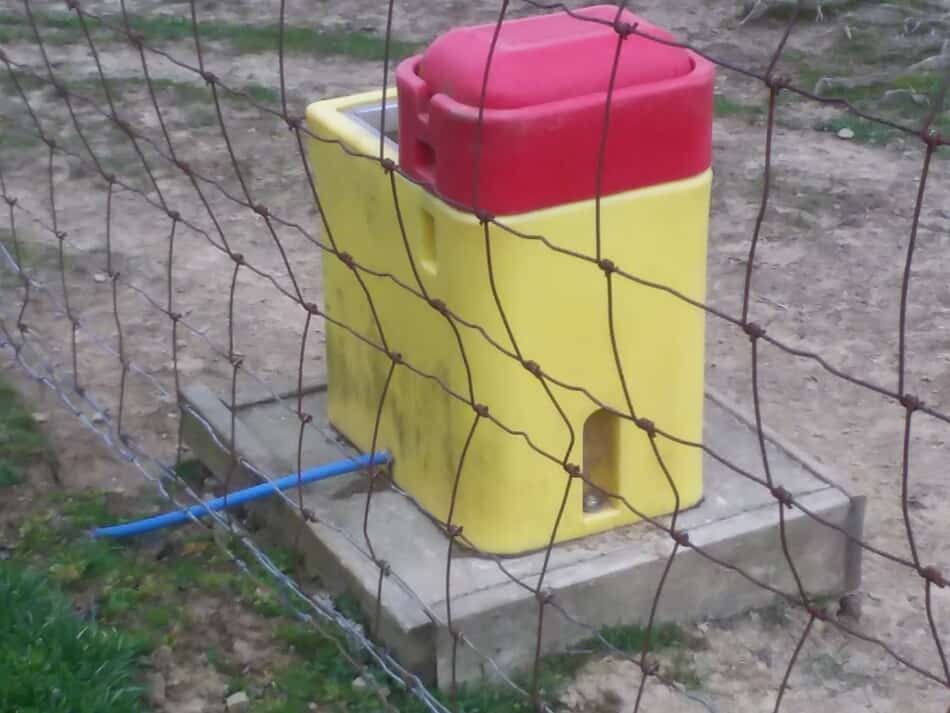
Mixed animal guidelines: applies to all combinations
Specific adaptations needed:
- Safe water for the chickens to drink, a large animal watering trough will drown chickens unless it is full
- Ducks their own water! Ducks need ground level water access for themselves. Keep the other animal’s water high enough the ducks can’t reach in. Don’t overlook this, ducks dibble in manure then go swish their beaks in the water, so they are putting cow poop (as an example) in the cow’s water, Yuck!
- Roosts for the chickens, you probably have these! If you are moving the chickens remember to include the roost.
- Nest boxes to collect eggs (if you don’t want to hunt around for them) or for the eggs to get stepped on. You probably have nest boxes, already, but if you don’t, get something set up.
- Shelter for the birds, if you want the group on pasture both night and day. The birds you have now will have a place they like and are comfortable with, if you want that to change, it will take some convincing.
Times when it won’t work:
- Nesting chickens and ducks, the nest will get messed with and the nesting mom will get harassed (if the other animals can reach her or the nest).
- Chicken or duck moms with babies, at least a few can get stepped on or lost trailing through other animals’ pens following mom around.
- If you need the other animal to stay out of the chicken’s or duck’s feed, they must be penned separately or the feed put in a place the other animal can not possibly get to.
Cattle are great with poultry
If you have the space, cattle are a great way to step up your self sufficiency and combine very well with chickens and ducks.
Since cattle are ruminants, they naturally provide a wealth of poultry nutrition in their manure.
5 Animals That Can Be Raised With Cattle gives you a few more options for pasture buddies.
Chickens and ducks love to eat cattle manure and are better off for it!
Ruminants and poultry are a match made in heaven as far as animals naturally made to work together and taking advantage of “problems” from one source as food for the other.
For example: the birds (both chickens and ducks) will go through the manure eating leftover bits and getting out any fly larvae.
Your birds will live for scratching through poop!
The benefit to the cattle is the poultry manure fertilizes the ground to grow more grass and the birds eliminate quite a few of the pesky bugs that will bother the cattle.
It’s a natural system, no pesticides or insecticides required.
Here’s a great article on grazing chickens and cattle together in On Pasture. (This is super useful online resource for you, look at some of their other articles, too.) This idea would work for ducks as well.
It is geared towards a larger sized operation, but don’t let that throw you, the ideas are the same no matter the size. Look at the illustrations to get the main idea.
Specific adaptations needed:
Cattle will push, it’s just what they do. They like to rub on easy access items to scratch or just have something to do.
Your equipment, like the nest boxes, need to be tough enough to handle cattle time or out of reach of the cattle!
Times when it won’t work:
If you are unwilling to provide shelter for the chickens and ducks, yet want them to stay with the cattle.
This is a recipe for disaster, you’ll literally have sitting ducks (and chickens!)
Your other potential challenge will be the cattle reaching over the top of a movable shelter, like a chicken tractor, or a pen division and trying to sneak some poultry feed.
Do the cattle need the grain? No, but they want it anyway!
Our Jersey cow, Aleene
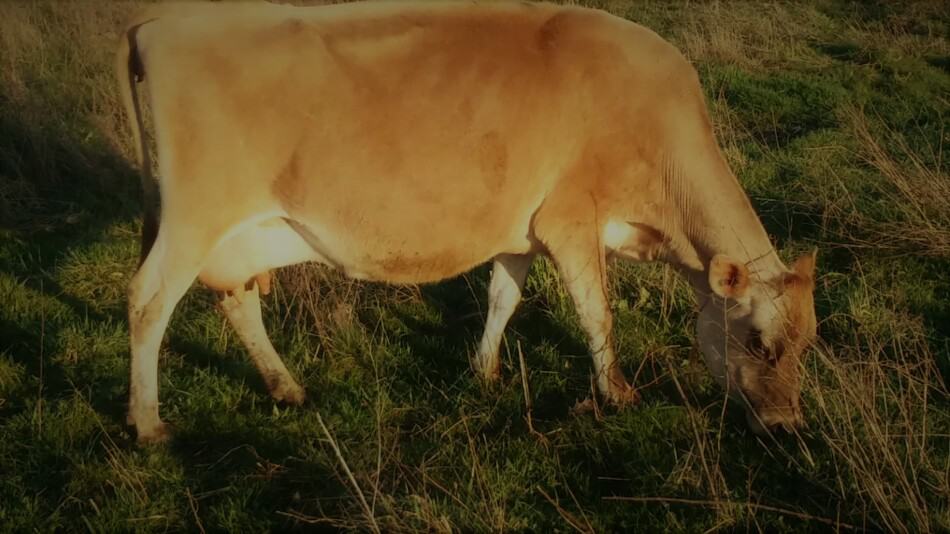
As an example, our family cow, Aleene, will go to crazy lengths to get even the smallest amount of grain. She’s an addict.
We normally don’t give her grain, just grass or hay. She hasn’t had any grain in her ration (unless she sneaks it) for more than 6 years. Even so, she definitely hasn’t forgotten about it!
Aleene is normally a well behaved cow, except for the grain addiction! Her being a dairy cow doesn’t matter, it’s a cow thing! Consider yourself warned!
Sheep and poultry are great together
Got extra grass: you need some sheep!
If you find that your chickens and ducks just are not keeping up with the grass and you are having to mow, consider getting some sheep to take care of that problem for you!
Sheep are excellent lawn mowers that have the benefit of being “pie-less” (as in cowpie!)
Specific adaptations needed:
For the most part, sheep are pretty easy to work with and well behaved around other animals.
Pros And Cons Of Raising Sheep goes over the good stuff and the challenges of raising sheep.
The only conflict I have seen is a chicken picking at the afterbirth that was still hanging out of a ewe.
The problem is this was annoying the ewe, so she was running off the chicken rather than focusing on her babies. I’ve only seen this once, though.
Times when it won’t work:
Don’t let those innocent faces fool you, if the sheep know about grain, they will be just as insistent as Aleene! (see above, in cattle)
Goats and birds live together well
To me goats are almost like dogs, in that they are friendly and personable. If you are looking for an addition to your farm that likes interaction and petting, think goat.
Goats would really shine for you if the space you have available is brushy or overgrown and you’d like all that twiggy type growth to be nipped back a bit.
Can Goats And Ducks Live Together? goes over the good and the not so good of keeping these two animals together.
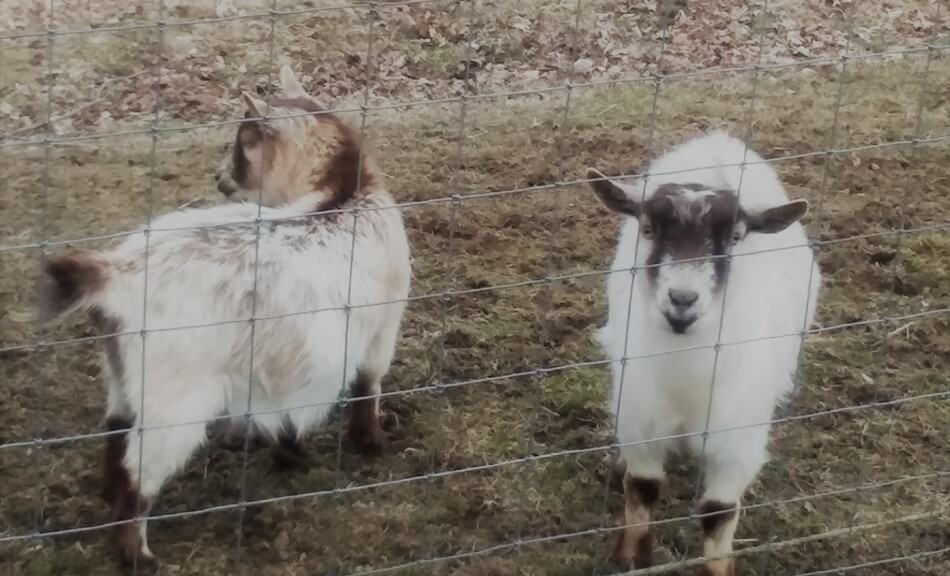
Specific adaptations needed:
Goats are the masters of getting out of pens and fences, seriously. You’ll need to be on your game with goat containment.
In my experience, the leggier the goat, the better of an escape artist it will be. The shorter ones are easier to keep in, but that could just be because they are short to being with!
This isn’t so much to keep the chickens and ducks separate from the goats, they’ll be fine together, it’s to keep the goats separate from your neighbor’s landscaping!
Times when it won’t work:
If you want to keep the goats out all night with no close shelter for your chickens and ducks. The birds will get picked off by predators.
Other poultry like ducks and chickens
I have to admit, it’s hard to limit myself when it comes to cool poultry. There are a crazy amount of options!
Good news, nearly any poultry will “play well” with chickens and ducks.
Specific adaptations needed:
Watch any special feeds. By that I mean any bird that needs special feed, for whatever reason, will be the target of your chickens and ducks looking to steal.
This is the whole kid’s fighting over the “best” Popsicle type stuff, no need for the bickering but they do it anyway!
Times when it won’t work:
The main concern here is with feed, specifically medicated feed. Ducks can not have medicated feed that is commonly purchased for other poultry, like turkeys.
Make it so the medicated feed eating birds are in an invader proof pen or don’t use the medicated feed.
Another option would be to keep the other birds on medicated feed completely separate from your chickens and ducks until the other birds no longer need their feed to be medicated.
For instance, the medicated feed is normally for young and fast growing turkeys, not adults.
Once the turkeys are full size they can be transitioned to a chicken and duck friendly feed and this won’t be an issue anymore.
Space To Raise Turkeys gives you some guidelines on the area needed to raise your poults, from brooder to adult.
Ducks and chickens live well with pigs
Pigs are an interesting potential addition to your flock, in that the chickens and ducks will be zooming over to visit the pigs and not the other way around.
Specifically the birds will be visiting the pigs’ feeder: easy access snacking.
I know there is some concern that pigs will eat the chickens and ducks, so far I have not had that happen.
If a chicken or duck dies, the pigs will eat it or at least taste test, but they won’t kill it. Pigs are certainly capable of killing the birds, they just don’t.
Remember, pigs are able to adapt. If they have an unbalance ration or are severely lacking in protein, they just might fix that with a chicken snack.
If you are giving them what they need, or giving them the opportunity to get it for themselves, like roaming the woodlot or pasture, then catching your chickens and ducks is likely to be too much work.
Here is a duck breed comparison table from Metzer Farms. I love how they take into account the temperament and mothering ability of the birds!
Specific adaptations needed:
If the pigs are able to reach the chicken or duck feed, they will. Even if they have plenty of their own, if the pig can reach it, she’ll eat it.
Since pigs are close to the ground, their water is always going to be in duck range. Use a cup or nipple waterer for the pigs to keep the water duck free.
Or if you are using pans, be sure to dump out the pan multiple times per day to give the pigs a shot at fresh and clean water.

Times when it won’t work:
If your pigs need medicated feed and the ducks are able to get into the pig’s pen, bad idea. Keep the ducks out or don’t use medicated pig feed.
Pigs love, love, love eggs! You can bet if the pigs can get into that duck nest they will. If the nest is undiscovered so far, it won’t be for long, they will find it!
Bees are great with poultry
Keeping bees with your chickens and ducks will work really well. The bees will not bother the chickens and ducks at all!
If you are a gardener, heavily consider adding bees to your flock!
The ground patrol (the chickens and ducks) will get all of the insects and slugs and the bees will ensure pollination. That’s a winning combination!
Even if you don’t do much gardening, bees are easy and can fit into nearly any backyard or small farm.
Specific adaptations needed:
None.
Times when it won’t work:
None that I am aware of, bees and poultry will work really well together!
